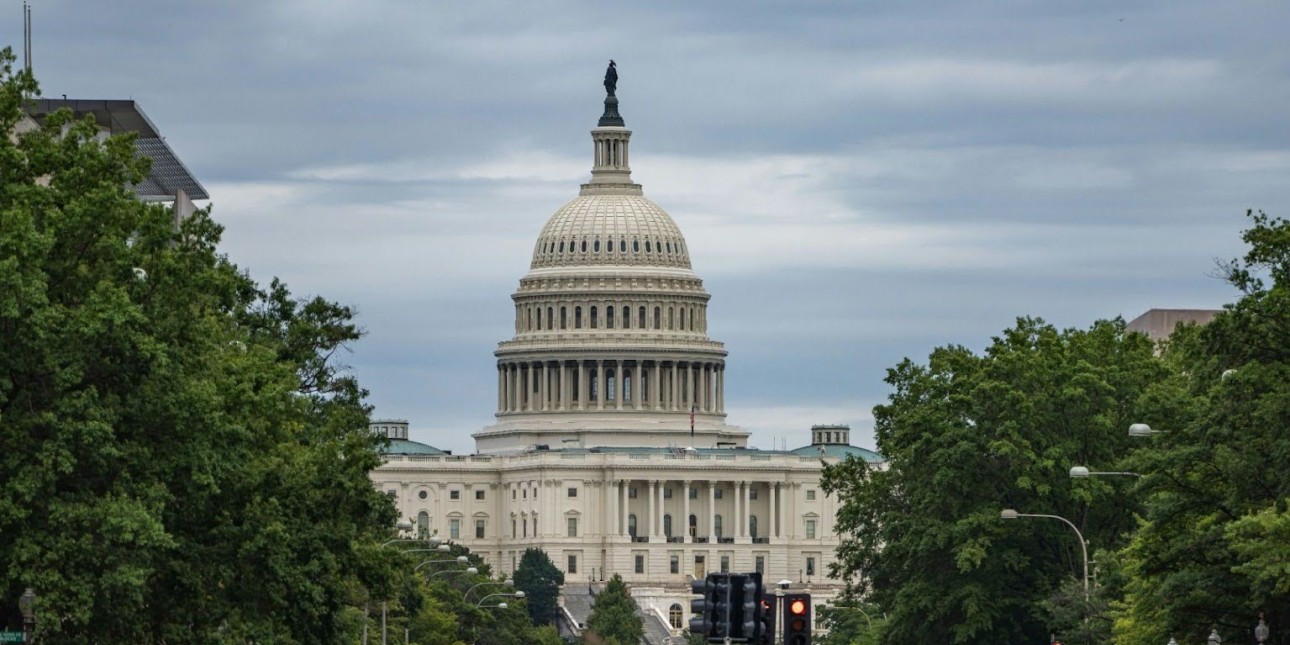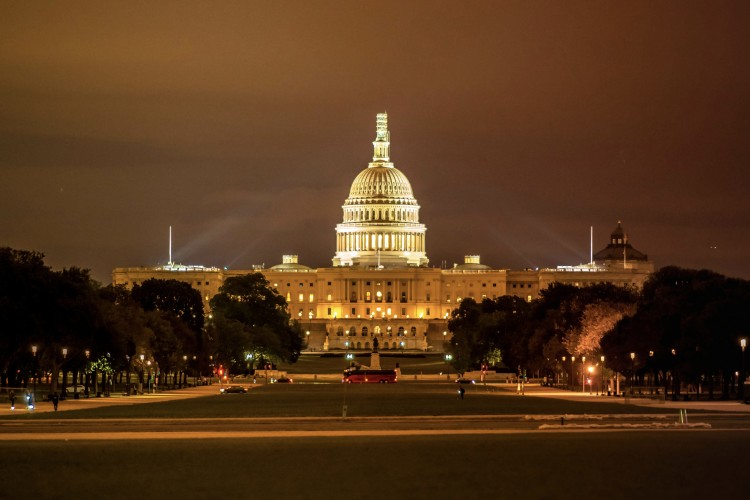Congress Advances FY2025 Appropriations

The House and Senate Appropriations Committees have quickly advanced several Fiscal Year 2025 funding bills through their respective committees, including recommendations for funding critical youth service programs.
In FY2025, the Senate Appropriations Committee recommends $107 million for the Youth Homelessness Demonstration Program (YHDP), level funding in comparison to last year. Of those funds, $25 million would be allocated for Youth Homelessness System Improvement Grants. The Senate also recommends $107 million for the Youth Mentoring Grants (YMG) program, a $3 million increase over FY24. The Senate Appropriations Committee will make its recommendation on FY25 funding for the Runaway and Homeless Youth (RHY) programs this Thursday, August 1.
Conversely, the House Appropriations Committee has recommended cuts in funding for many FY25 programs. The House recommends only $82 million for YHDP (a $25 million reduction from last year) but has called for level funding for YMG ($104 million) and RHY ($146 million) in FY25, a surprisingly strong outcome for both programs in a challenging fiscal year for non-defense programs.
Congress will likely attempt to pass a continuing resolution in September to delay the process of merging or "conferencing" the differences in the House and Senate spending bills until after the November elections. Final decisions will likely be made through frenetic negotiations in late November and December. Read more >>
The Senate's Funding Recommendations
The Senate Appropriations Committee has passed seven of their twelve appropriations bills. The Committee will meet this Thursday, August 1, to review four more bills.
The Senate's funding recommendations are likely to be the "high water mark" for most non-defense programs in FY2025 because the House has proposed cutting hundreds of billions of dollars from non-defense programs this year. The House Appropriations Committee already advanced all twelve of its bills out of committee earlier this summer, but their momentum has since stalled as the proposed cuts are so draconian that they could not muster a majority of support on the House floor.
You can review the Senate's recommendations for several key youth service programs below. Please note, the House and Senate must merge or "conference" their recommended funding levels before sending the bill to the President for his signature. This merging process will not happen until after the November elections.
The Senate's spending bills include the following funding levels and accompanying "report language" or instructions to federal agencies. To read the full reports please see the accompanying links below.
Youth Homelessness Demonstration Program
$107 million, equal to FY22, FY23, and FY24 enacted funding levels. Of the $107 million, at least $25 million shall be for the Youth Homelessness System Improvement grants (YHSI).
Accompanying the YHDP funding is a statement:
- Continued language ensuring that homeless youth ages 24 and under are not required to provide third-party documentation for housing and supportive services and requiring HUD to provide further clarification and guidance.
- Continued flexibilities for federally recognized Indian tribes and TDHEs with YHDP to enable their increased participation in homeless assistance programs.
- Clarity on the Homeless Management Information Systems (HMIS) and direction from the Committee to work with CoCs, people who have experienced homelessness, vendors, and other stakeholders to enable a standard report of all currently active individuals and key program information that is available to CoCs to inform real-time decisions, and to specify application programming interface requirements and other specifications so CoCs can better share information and ensure privacy and security for more effective real-time program management.
- Authorization to HUD to issue a 2-year NOFO for fiscal years 2024 and 2025, allowing CoCs to redirect hours spent on the application process for fiscal year 2025 to direct service delivery.
- Reminder from the Committee to HUD of the directive to explore the creation of a digital data collection and analysis platform for communities to use in conducting the point-in-time count.
- Continued instruction from the Committee to HUD to include additional Federal data on homelessness, particularly concerning youth homelessness, in the AHAR to help communities develop and implement responsive policies.
- And lastly, the Committee directed HUD to review agency guidance regarding the use of Homeless Assistance Grants funds in emergency shelters and identify regulatory or statutory measures that may potentially undermine either the direct provision of supportive services or the effective partnership with other Federal, State, or local stakeholders and service providers.
Read the full text on the Committee's instructions on page 126 of Senate THUD Report.
Official summaries of the complete FY25 THUD funding bill from the Senate can be found at the following link: Transportation Housing and Urban Development.
Youth Mentoring Grants
$107,000,000 for competitive, peer-reviewed youth mentoring grants, $3 million above last year's enacted level, bringing YMG back to FY23 levels. Of the $107 million, $16.5 million shall be for helping youth impacted by substance abuse, including opioids and methamphetamine.
Read the full text on the Committee's instructions on page 141 of Senate CJS Report.
Official summaries of the complete FY25 CJS funding bill from the Senate can be found at the following link: Commerce, Justice, Science, and Related Agencies.
The House's Funding Recommendations
As in the Senate, the House Appropriations Committee has released their recommended funding and report language instructions.
Please keep in mind, House Republicans have opted to treat the agreed-upon spending levels from the Fiscal Responsibility Act as a ceiling, not a floor, when allocating funds for federal programs in FY2025. As a result, the House is recommending cutting funding for many programs by as much as 25-30 percent. Additionally, many of the House's bills contain controversial policy changes, often referred to as "poison pill amendments" that will be flatly rejected by Senate Democrats.
Links to three of the House's funding bills, including the funding levels and accompanying "report language" are below.
Youth Homelessness Demonstration Program
$82 million, a $25m decrease from enacted levels in FY25. There was unfortunately no accompanying report language for YHDP funding in this year's Funding report.
Read the full text on the Committee's instructions on page 88 of House THUD Report.
Official summaries of the complete FY25 THUD funding bill from the House can be found at the following link: Transportation Housing and Urban Development.
Youth Mentoring Grants
$104,000,000 for competitive, peer-reviewed youth mentoring grants, a $3 million decrease in funding from FY23 funding levels and level funding to that of FY24.
There, again, was unfortunately no accompanying report language for YMG funding in this year's funding report.
Read the full text on the Committee's bill on page 85 of House CJS Bill.
Official summaries of the complete FY24 CJS funding bill from the House can be found at the following link: Commerce, Justice, Science, and Related Agencies.
Runaway and Homeless Youth Program (RHY)
The House recommends $146,283,000 for competitive RHY grants to provide street outreach, emergency shelters, and longer-term transitional living programs to protect and provide supportive services to runaway and homeless youth. Of the funds provided, $21 million will be for Street Outreach Programs.
The Committee's LHHS Report provided minimal instructions on page 164.
What happens next?
The next step is to come to agreement on the overall funding amounts for FY25 - reconciling the differences in appropriation amounts. Congress will likely attempt to pass a continuing resolution in September to delay the process of merging or "conferencing" the differences in the House and Senate spending bills until after the November elections. Final decisions will likely be made through frenetic negotiations in late November and December.
Keep an eye on your email and this blog series for updates!


